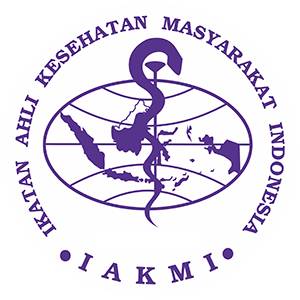Comparative Analysis of Student Understanding Levels Using Lecture, Group Discussion and Information Technology- Based Methods of Postpartum Care Education at 'Aisyiyah University Surakarta
DOI:
https://doi.org/10.30787/gaster.v21i2.1076Keywords:
Postpartum Care, Instructional Media, Lecture Methods, Group Discussion, Information TechnologyAbstract
Postpartum care is one of the most essential subjects in midwifery program which student needs to obtain. This provides students with abilities based on concepts, attitudes, skills and the results of critical thinking as well as an evidence base in practice. This study aims to analyze the comparison of students' understanding levels using information technology-based, lecture and group discussion methods about postpartum care education at 'aisyiyah Surakarta University, especially during the Covid-19 pandemic. The method used was data collection ,form of interviews and questionnaires, related to midwifery care material/competencies using lecture, group discussion and information technology-based methods with a total of 37 students as respondents. Calculation the level of understanding using a Likert Scale, Validity Test (T-count, T-table) and Reliability Test, to find out the results of a comparison of learning models with lecture, group discussion and information technology-based methods. Results : The level of understanding using the lecture method is 81%, 94% in the group discussion method and 100% in information technology-based methods. Conclusion : It can be concluded that the learning model which is most in demand by students and has a strongly high level of comprehension was using information technology-based methods.
References
Ahmed, S.M. et al. (2020) ‘Self-Medication and Safety Profile of Medicines Used among Pregnant Women in a Tertiary Teaching Hospital in Jimma, Ethiopia: A Cross-Sectional Study’, International Journal of Environmental Research and Public Health, 17.
Diana, S. (2017) Midwifery Care Model Continuity Of Care. Surakarta: CV Kekata Group.
Drake, S.M. (2013) Creating an integrated curriculum based on standards. Jakarta: PT. Indeks.
Fitri, D.M. and Nurhidayah, N. (2021) ‘The relationship between lecture methods, learning attitudes, lecturer teaching strategies and economic status with student achievement indexes’, Research and Development Journal of Education, 7(2), p. 373. doi:10.30998/rdje.v7i2.9165.
Gunawan, G., Suranti, N.M.Y. and Fathoroni, F. (2020) ‘Variations of Models and Learning Platforms for Prospective Teachers During the COVID-19 Pandemic Period’, in.
Jamila, Ahdar and Natsir, E. (2021) ‘Problems of Teachers and Students in the Online Learning Process during the Covid-19 Pandemic at UPTD SMP Negeri 1 Parepare’, AL Ma’ Arief: Jurnal Pendidikan Sosial Dan Budaya, 3(2), pp. 101–110. Available at: https://ejurnal.iainpare.ac.id/index.php/ALMAARIEF/article/view/2346.
Lestari, I.A.P.S. (2018) ‘Application of discussion and recitation learning methods in improving the learning outcomes of Hindu religious education for grade IV students of Sd Negeri 2 Tumbu Karangasem’, Jurnal Penjaminan Mutu, 4. Available at: http://ejournal.ihdn.ac.id/index.php/JPM/article/view/398.
Mahsup, Abdillah and Syaharuddin (2019) ‘Application of Discussion Method Learning to Improve Student Mathematics Learning Outcomes on Determinant Material’, Jurnal Ulul Albab, 23(1), p. 33. doi:10.31764/jua.v23i1.643.
Nadrah, N. (2023) ‘Learning Media Improves Achievement Learning Science of Fourth Grade Elementary School Students’, International Journal of Elementary Education, 7(2), pp. 282–288.
Novitasari, D. (2016) ‘The effect of using interactive multimedia on students' ability to understand mathematical concepts’, FIBONACCI: Jurnal Pendidikan Matematika dan Matematika, 2(2), p. 8. doi:10.24853/fbc.2.2.8-18.
Prawirohardjo, S. (2009) Midwifery Science. Jakarta: Yayasan Bina Pustaka.
Purba, F.J. (2020) ‘Use of Discussion Methods in Improving Learning Outcomes’, Jurnal Inovasi Pembelajaran Fisika (INPAFI), 8(1), p. 26.
Puspitarini, Y.D. and Hanif, M. (2019) ‘Using Learning Media to Increase Learning Motivation in Elementary School’, Anatolian Journal of Education, 4(2), pp. 53–60. doi:10.29333/aje.2019.426a.
Ramadhani, A.D., Triyanto, A. and Muhammad, I.F. (2019) ‘The Effect of E- Marketing With AISAS Model ( Attention , Interest , Search , Action , Share ) on Investment Decisions in Fintech Syariah’, Jurnal Ekonomi dan Perbankan Syariah, 7(2), pp. 47–57.
Rijali, A. (2019) ‘Qualitative Data Analysis’, Alhadharah: Jurnal Ilmu Dakwah, 17(33), p. 81. doi:10.18592/alhadharah.v17i33.2374.
Simanjuntak, H., Endaryono, B. toni and Balyan (2020) ‘The Role of Information Technology in the Process of Teaching and Learning Activities in Elementary Schools’, Inventa, 4(1), pp. 1–10. doi:10.36456/inventa.4.1.a2122.
Sun, L., Tang, Y. and Zuo, W. (2020) ‘Coronavirus pushes education online’, Nature Materials, 19(6), p. 687. doi:10.1038/s41563-020-0678-8.
Suni Astini, N.K. (2020) ‘Challenges and Opportunities for Utilizing Information Technology in Online Learning during Covid-19’, Cetta: Jurnal Ilmu Pendidikan, 3(2), pp. 241–255. doi:10.37329/cetta.v3i2.452.
Susanti, E. and Yulia, F. (2021) ‘The influence of the lecture method on student learning outcomes in SKI subjects’, Manhaji. Journal Manajemen Pendidikan Islam, pp. 8–14.
Sutarto, S., Sari, D.P. and Fathurrochman, I. (2020) ‘Teacher strategies in online learning to increase students’ interest in learning during COVID-19 pandemic’, Jurnal Konseling dan Pendidikan, 8(3), p. 129. doi:10.29210/147800.
Tarigan, E.E. (2019) ‘Learning Through IT-Based Media in Elementary Schools’, Prosiding Seminar Nasional Fakultas Ilmu Sosial Universitas Negeri Medan, 3, pp. 987–990.
WHO (2013) WHO Recommendation on postnatal care of the mother andnewborn.Geneva, Switzerland
Downloads
Published
How to Cite
Issue
Section
License
Copyright (c) 2023 Gaster

This work is licensed under a Creative Commons Attribution-ShareAlike 4.0 International License.














